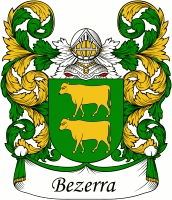Fatima, also spelled Fatimah, is a feminine given name of Arabic origin used throughout the Muslim world. Several relatives of the Islamic prophet Muhammad had the name, including his daughter Fatima as the most famous one. The literal meaning of the name is one who weans an infant or one who abstains.

Our Lady of Fátima is a Catholic title of Mary, mother of Jesus, based on the Marian apparitions reported in 1917 by three shepherd children at the Cova da Iria in Fátima, Portugal. The three children were Lúcia dos Santos and her cousins Francisco and Jacinta Marto. José Alves Correia da Silva, Bishop of Leiria, declared the events worthy of belief on 13 October 1930.
José is a predominantly Spanish and Portuguese form of the given name Joseph. While spelled alike, this name is pronounced very differently in each of the two languages: Spanish ; Portuguese.

The Fátima prayers are a collection of seven Catholic prayers associated with the 1917 Marian apparitions at Fátima, Portugal. Of the seven prayers, reportedly, the first two were taught to the three child visionaries by the Angel of Peace in 1916, the next three were taught to them by Our Lady of Fátima herself during the course of the apparitions, and the final two were taught to Lúcia de Jesus Rosa dos Santos in 1931 by Jesus Christ when she was already a nun. Of the seven prayers, the rosary decade prayer is the best-known and the most widely recited. For each prayer below, an English translation is given alongside the Portuguese original.

Lopes is Portuguese and Galician surname. Origin: Germanic patronymic for son of Lopo, itself being derived from Latin lupus wolf. This surname occurs in other Romance variants, such as Spanish López, Italian Lupo, French Loup, and Romanian Lupu or Lupescu.
Pires is a common surname in the Portuguese language, namely in Portugal and Brazil. It was originally a patronymic, meaning Son of Pedro or Son of Pero. Its Spanish equivalent is Pérez. It is a variant form of Peres. It may mean different things:
Santos is a Spanish surname with several variations. It can also be a Portuguese and Galician surname. The English translation of Santos is Saints. A singular version, Santo, may occur. Origin: Christian, from Latin sanctus.
Soares is a common surname in the Portuguese language and Galician, namely in the Portuguese speaking world, as well as other places. It was originally a patronymic, meaning Son of Soeiro. It is equivalent to the Spanish surname Suárez. Notable people named Soares include:
José María is a Spanish language male given name, usually considered a single given name rather than two names, and is a combination of the Spanish names of Joseph and Mary, the parents of Jesus Christ. The separate names "José" for males and "María" for females also exist in the Spanish language. They can also combine in the inverse order forming the female name "María José" ; that is, the gender of the compound names "José María" and "María José" is determined by their first component. The name "José María" is colloquially shortened to "José Mari", "Josema" or replaced by the hypocoristic forms "Chema", "Chemari" or "Chemis".
Francisco is the Spanish and Portuguese form of the masculine given name Franciscus.

Bezerra is a Portuguese surname of Hebrew ancestry, popular among the Sephardi Jewish settlers in Northern Portugal. The name translates to 'heifer'. The first members of this family have origins in Ponte de Lima, the oldest Portuguese village, and can be traced back to the century XII.
Francisca is a feminine given name. Notable people with the name include:
Melo is a Portuguese surname. Variants include Mello, de Melo or de Mello, D'Melo or D'Mello, De Melo and De Mello.
María José is a Spanish language female given name. Maria José is a Portuguese language female given name. It is a combination of the names María and José, often given in reference to the mother and foster father of Jesus.
Josefa is a given name. Notable people with the name include:
Ines, and variants, is a feminine given name related to Agnes.
Ana is a version of the female given name Anna meaning "favour" or "grace".
María de Lourdes is a Spanish feminine given name taken from Our Lady of Lourdes a title of the Virgin Mary
Agra is a Galician and Portuguese surname, most frequently found in Brazil and the Rías Baixas area of Spain. Notable people with the surname include:
This page is based on this
Wikipedia article Text is available under the
CC BY-SA 4.0 license; additional terms may apply.
Images, videos and audio are available under their respective licenses.



